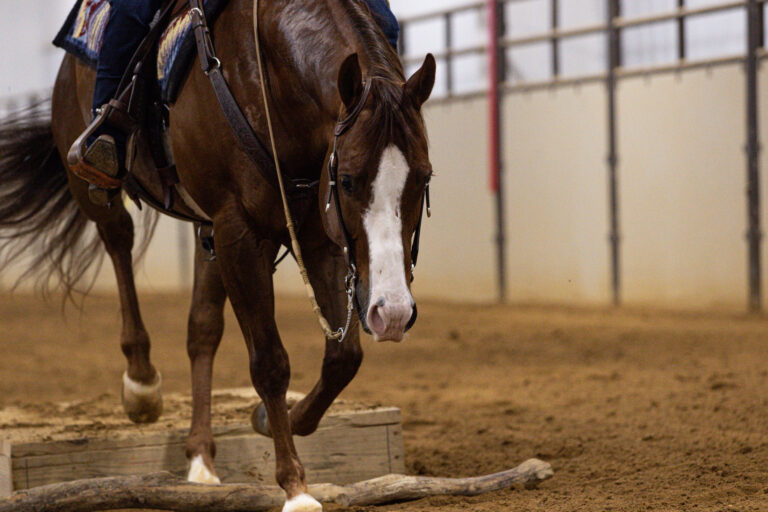
You can’t change your horse’s DNA, but you can help him to be as calm and quiet as his nature allows—and you don’t have to resort to tranquilizers to do it. Here’s how.
Extra Turnout
Plenty of turnout is a health-boosting basic, and it’s especially important to help horses avoid building up excess energy. Like a high-strung child on a rainy day, your horse can get extra crazy if he’s kept cooped up too much. In the wild, of course, horses are moving almost constantly. So, the more turnout, the better.
‘Smart’ Feed
Many seemingly hot horses are simply overfed and underworked. To keep your horse from the equivalent of a sugar high, make sure you balance the amount of feed he eats with the amount of work he’s doing. In general, unless you’re working your horse hard, a good-quality grass hay and a vitamin/mineral supplement may be all he needs to stay in good flesh and level temperament. If he needs more, consider supplementing with one of the good low-carbohydrate pelleted feeds or ration balancers. Be sure not fall into the “starvation trap”—that is, trying to control your horse’s behavior by feeding only low-protein grass hay. You want him content and calm—not malnourished.
Calming Supplements
Many products on the market are designed to help worried or excitable horses relax. Some of the ingredients used in these products have a bit of science behind them and do seem to work for some horses. Ingredients to look for: tryptophan, the amino acid that makes humans drowsy when we consume it in warm milk or turkey; thiamine, a B vitamin essential to nerve function; magnesium, a mineral important to function of muscles and nerves; valerian, an herbal that affects the body somewhat similarly to valium; progesterone, a hormone that may help mares, geldings, or stallions in certain circumstances—ask your vet. (Note: Whatever you do, be sure to check with your breed or sport organization on the permissibility of specific ingredients.)






